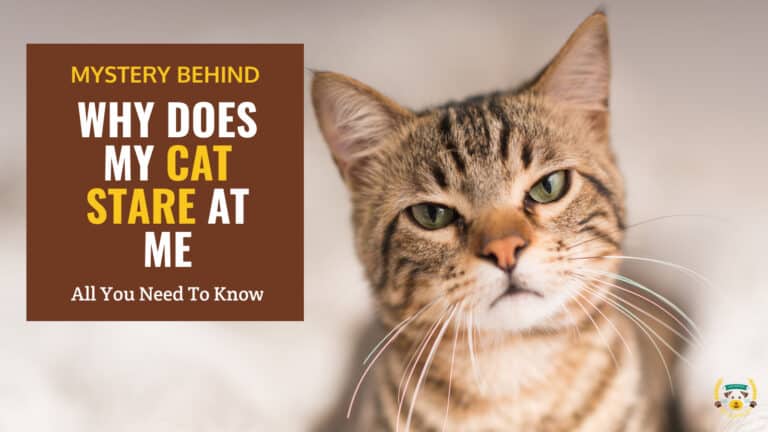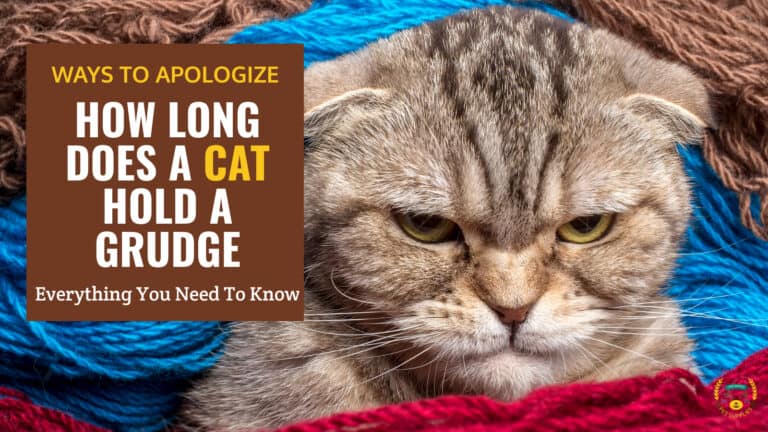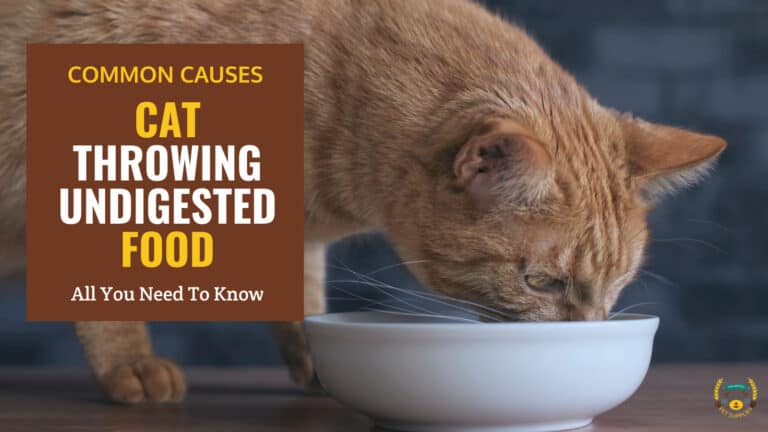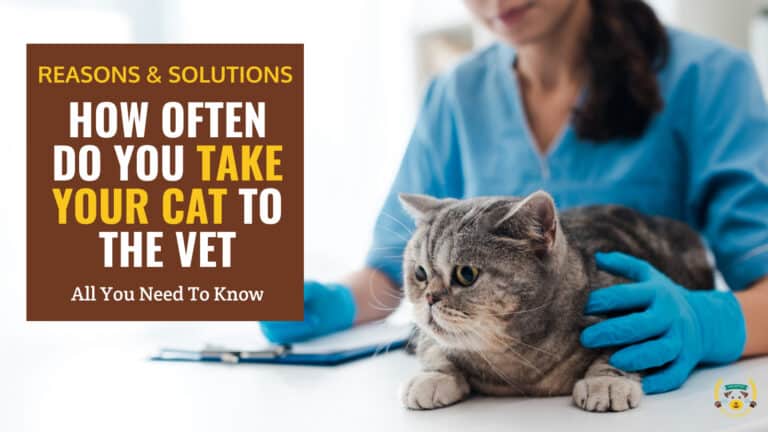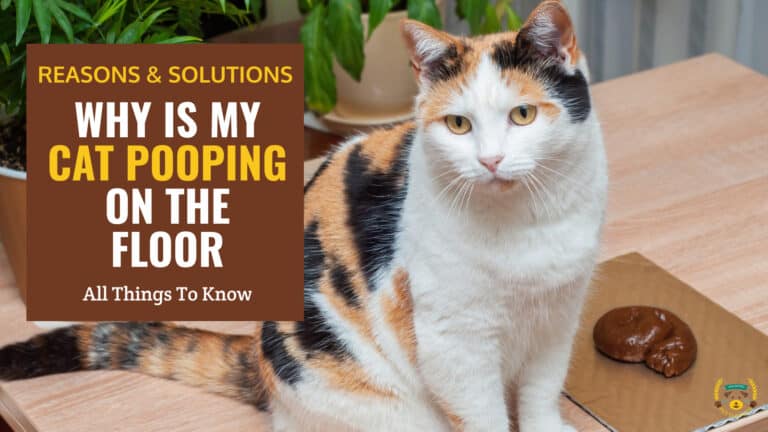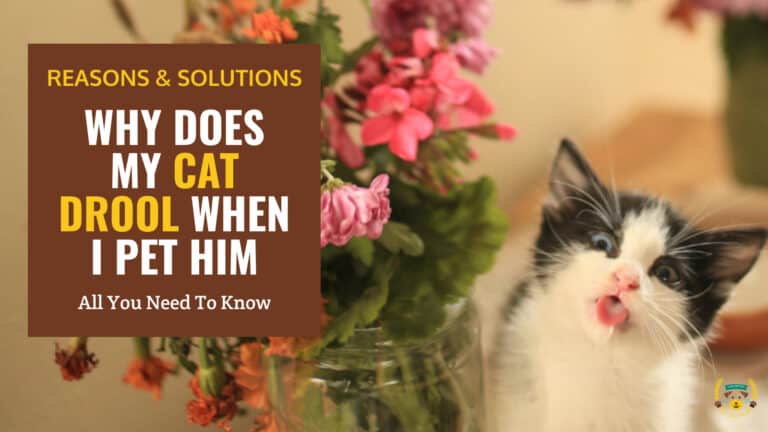Why Does My Cat Lick My Face?
Last updated: March 19, 2024
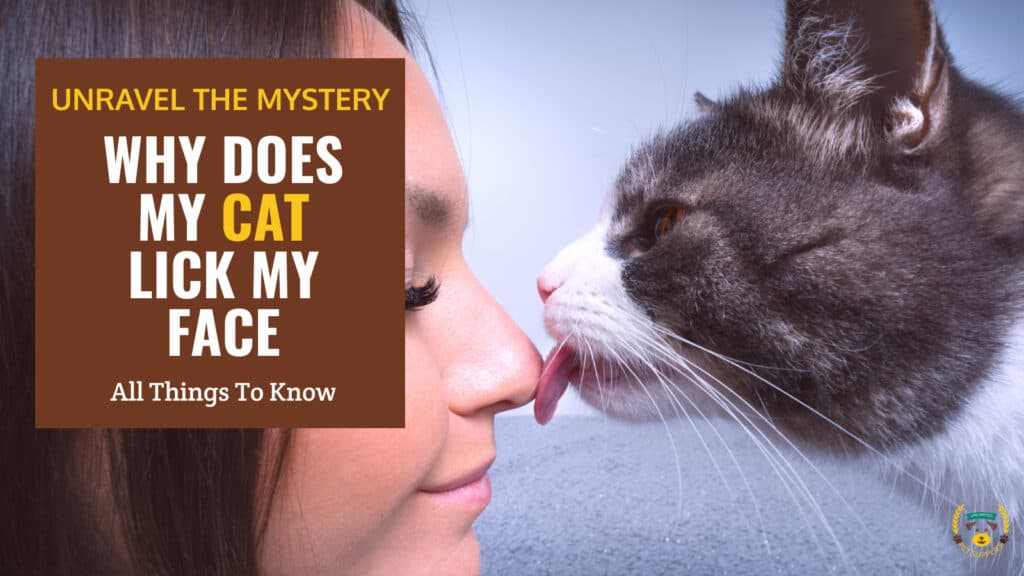
Summary
- Licking the owner's face shows a cat's love (grooming instinct)
- Mimics mom cat cleaning kittens
- Social bonding behavior among cats (extends to humans)
- Cat's way of getting your attention
- Comfort for anxious or stressed cats (familiar scent)
- Salty skin equals tasty treat (for some cats)
Cats are enigmatic creatures, and their behavior often leaves us scratching our heads. One quirky behavior that many cat owners experience is face licking. You might be lounging on the couch, and suddenly, your furry friend hops up and starts licking your face with their rough, sandpaper-like tongue.
So, why do cats engage in this peculiar activity? Is it a sign of affection, or are they just trying to get a taste of your lunch? The truth is, there are several reasons why your cat might be drawn to licking your face.
In this article, we'll explore the various reasons for face licking and unravel the mystery behind this intriguing feline habit.
- 1) Affection and Bonding Through Face Licking
- 2) Instinctive Behaviors
- 3) Seeking Attention and Comfort
- 4) Taste and Texture Preferences
- 5) Potential Health Concerns
- 6) Managing Unwanted Face Licking
-
7)
Frequently Asked Questions
- 7.1) Is face licking common among cats?
- 7.2) Is face licking a sign of dominance?
- 7.3) When is excessive face licking a concern?
- 7.4) How can I discourage face licking?
- 7.5) Is it hygienic to let my cat lick my face?
- 7.6) Can face licking be a sign of hunger?
- 7.7) Do cats lick faces as a way of grooming their owners?
- 8) Final Thoughts
Affection and Bonding Through Face Licking
Your cat's licking might be its own way of showing and expressing emotions.
Cats Show Love Through Grooming
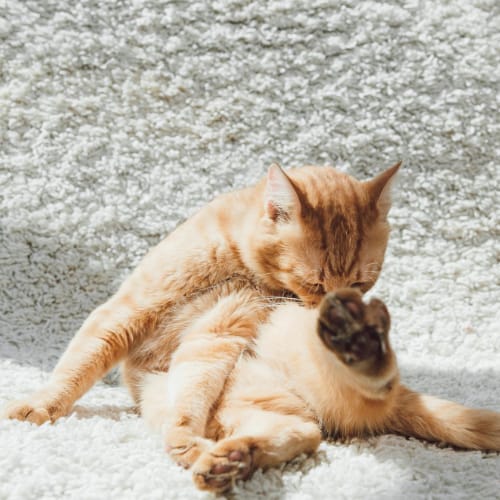
Have you ever watched your cat meticulously groom themselves for what seems like hours on end? Cats are fastidious creatures, and they spend a significant portion of their day licking their fur to keep it clean and soft.
But did you know that grooming isn't just about hygiene? When your cat licks your face, they're actually showing you affection in their own special way.
Face Licking as a Sign of Trust
Cats are selective about who they choose to groom. In the feline world, mutual grooming is a sign of trust and bonding.
When your cat licks your face, they're treating you as a member of their family. They're saying, "I trust you, and I want to strengthen our bond." It's a heartwarming gesture that demonstrates the depth of your cat's love for you.
Strengthening the Human-Cat Bond
Allowing your cat to lick your face can help reinforce the bond you share. When you respond positively to their affectionate behavior, your cat feels encouraged to continue showing you love in this way. You can even mimic their behavior by gently petting their head or cheeks, which are areas they often groom on each other.
However, it's important to respect your cat's boundaries. Some cats may enjoy licking your face more than others, and that's okay. Pay attention to your cat's body language and vocalizations. If they seem uncomfortable or try to move away, don't force the interaction. Just like humans, cats have their own preferences and moods.
Instinctive Behaviors
Licking your face might also be a purely instinctive behavior.
Maternal Instincts and Grooming
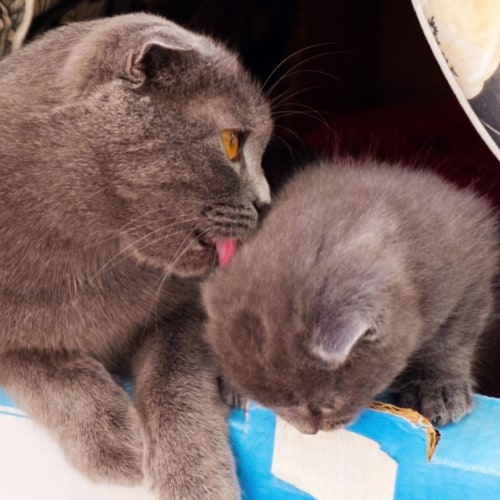
Did you know that your cat's face-licking habit might have its roots in their early kittenhood? When a mother cat gives birth to her litter, one of her primary responsibilities is keeping her kittens clean. She spends hours licking her babies from head to tail, stimulating their digestion, and helping them feel safe and secure.
This maternal grooming instinct is deeply ingrained in cats, and it continues to play a role in their behavior throughout their lives. Even if your cat was separated from their mother at a young age, they likely still retain this instinctive drive to groom themselves and others.
While licking can be a sign of affection, it can also be a sign that your cat is bored and seeks an outlet for their energy. If you notice your cat excessively licking themselves, consider providing them with interactive cat toys. This can help reduce boredom and provide much-needed mental and physical stimulation for your feline friend.
Social Grooming Among Cats
Have you ever watched a group of cats lounging together in a sunny spot? Chances are, you've seen them engage in mutual grooming sessions. Cats who live together often lick each other's faces, ears, and heads as a way of strengthening their social bonds.
This behavior, known as allogrooming, helps cats establish and maintain a sense of community within their feline family. By licking each other, they're not only keeping each other clean but also exchanging scents and reaffirming their connections.
Extending Grooming Behaviors to Humans
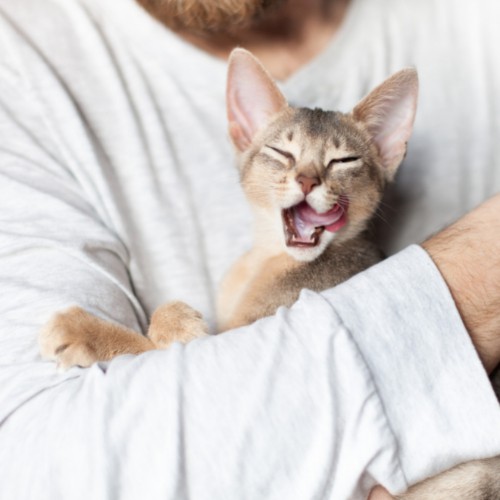
So, what does all this have to do with your cat licking your face? Well, when your cat licks you, they're essentially treating you as another member of their feline family. They're extending their instinctive grooming behaviors to you, just as they would to another cat.
Your cat might see you as a giant, somewhat clumsy kitten who needs some extra grooming attention. By licking your face, they're fulfilling their maternal instincts and strengthening the bond they share with you.
It's a testament to the close relationship you've built with your feline friend. They trust you enough to engage in this intimate behavior, and they want to make you feel like a part of their world.
Seeking Attention and Comfort
Picture this: You're engrossed in a book or working on your laptop when your cat hops onto your lap and starts licking your face. Suddenly, your attention shifts from your task to your furry friend. This is no coincidence. Cats are clever creatures, and they quickly learn that licking your face is an effective way to get your undivided attention.
Face licking can be your cat's way of saying, "Hey, I'm here! Pay attention to me!" They know that their rough tongue against your skin is hard to ignore, and it's a surefire way to get you to focus on them. If you've reinforced this behavior by giving your cat attention or treats when they lick your face, they'll be even more likely to repeat it in the future.
Seeking Attention During Stressful Situations
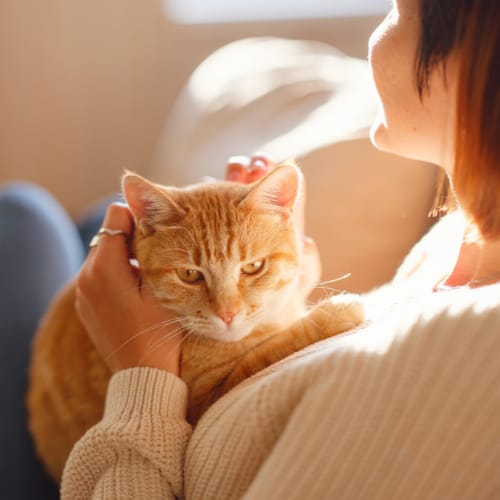
Like humans, cats can experience stress and anxiety. When they feel overwhelmed, they may seek out their trusted human for comfort and reassurance. In these situations, your cat might lick your face as a way of self-soothing and seeking your attention.
Think about times when there's been a loud noise outside, or when you've had guests over. Your cat might come to you for safety and security, and licking your face could be their way of saying, "I'm feeling anxious. Can you help me feel better?" By providing a calming presence and gentle petting, you can help your cat feel more at ease.
Finding Comfort in Familiar Scents
Scent plays a crucial role in a cat's world. They have a highly developed sense of smell, and familiar scents can bring them comfort and security. When your cat licks your face, they're not only getting your attention but also taking in your scent.
Your smell is like a security blanket for your cat. It reminds them of the bond you share and can help them feel safe and content. If you've been away from home for a while, your cat might be especially eager to lick your face when you return. It's their way of reacquainting themselves with your scent and reaffirming your connection.
Taste and Texture Preferences
Your cat's odd behavior can also be explained in terms of taste preferences.
The Appeal of Salty Skin
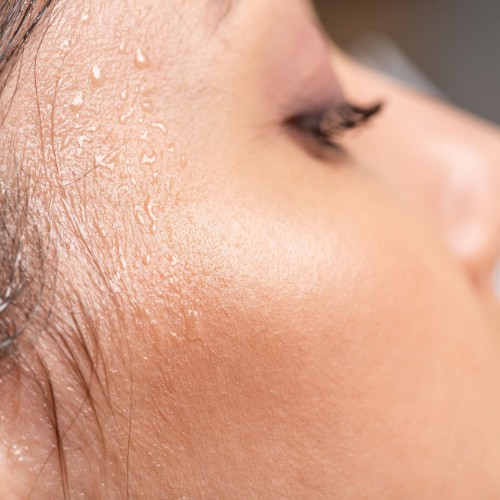
Have you ever noticed your cat licking your face more enthusiastically after you've been sweating or exercising? There's a reason for that. Cats are drawn to the taste of salt, and our skin can be a tantalizing source of this mineral.
When we sweat, our bodies release a mixture of water, salt, and other compounds. To your cat, this salty residue on your skin is like a tasty treat. They may lick your face, arms, or legs to get a dose of salt, which can be appealing to their taste buds.
Exploring Different Textures
Cats are curious creatures, and their tongues are not just for grooming and tasting. They also use their tongues to explore and gather information about their environment. When your cat licks your face, they may be intrigued by the texture of your skin, hair, or facial hair.
Your cat's tongue is covered in tiny, backward-facing barbs called papillae. These barbs help them groom their fur, but they also allow them to feel and explore different textures. Licking your face might be your cat's way of investigating the unique texture of human skin and satisfying their curiosity.
Individual Preferences and Quirks
Cats have their own individual preferences and quirks. Some cats may be more drawn to licking faces than others, and their reasons can vary.
For example, one cat might love the taste of your skin care products, while another may be fascinated by the feeling of your stubble. Some cats may lick your face as part of their daily grooming routine, while others reserve it for special bonding moments.
Pay attention to your cat's face-licking habits, and you may start to notice patterns or triggers. Does your cat lick your face more when you've been cooking with fragrant spices? Do they seem to prefer licking your face in the morning or at night?
Potential Health Concerns
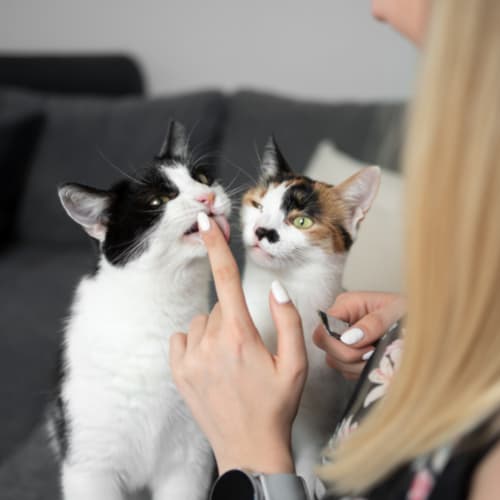
Even if your cat's licking is usually harmless and a sign of affection and feelings, if it becomes excessive, it can be a sign of serious health issues - mental or physical.
Excessive Face Licking as a Sign of Anxiety
There are times when face-licking can signal an underlying health issue. If your cat seems to be licking your face excessively or compulsively, it could be a sign of anxiety or stress.
Cats can experience anxiety for a variety of reasons, such as changes in their environment, new pets or people in the household or a lack of stimulation. If your cat is feeling anxious, they may seek comfort by licking your face more frequently or intensely than usual.
If you suspect your cat's face licking is related to anxiety, look for other signs of stress, such as hiding, changes in appetite or inappropriate elimination. Consult with your veterinarian to rule out any medical causes and discuss strategies to reduce your cat's anxiety, such as providing a calm, stable environment and engaging them in play and exercise.
Dental Issues and Oral Discomfort
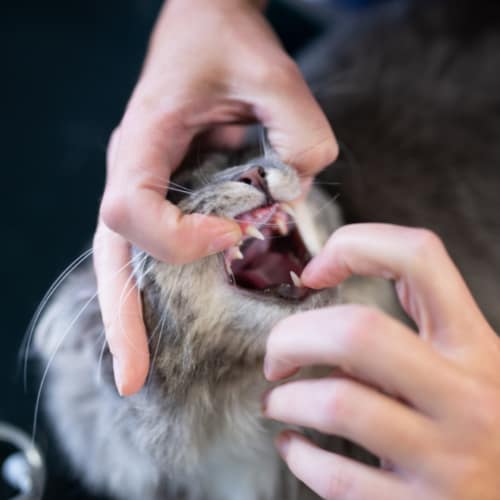
Another potential health concern related to face licking is dental or oral discomfort. If your cat suddenly starts licking your face more frequently or aggressively, it could be a sign that they're experiencing pain or irritation in their mouth.
Dental issues, such as tooth decay, gum disease, or oral infections, can cause significant discomfort for cats. They may lick your face as a way of seeking comfort or trying to alleviate the pain.
Other signs of dental or oral problems in cats include:
- Bad breath
- Drooling
- Difficulty eating or chewing
- Pawing at the mouth
- Swelling around the face or jaw
If you notice any of these symptoms alongside increased face licking, schedule a visit with your veterinarian. They can examine your cat's mouth and recommend appropriate treatment, such as dental cleaning, tooth extractions or medication.
When to Consult a Veterinarian
While face licking is generally not a cause for concern, there are times when it's important to seek veterinary advice. Contact your veterinarian if you notice any of the following:
- Sudden increase in frequency or intensity of face licking
- Excessive or compulsive face licking that interferes with your cat's daily activities
- Face licking accompanied by other signs of anxiety or stress
- Face licking alongside symptoms of dental or oral discomfort
- Any other unusual changes in your cat's behavior or health
Regular vet checkups are crucial for maintaining your cat's overall health and well-being. For a better understanding of how often cat checkups are recommended, check out our article on the ideal frequency for cat wellness exams.
Managing Unwanted Face Licking
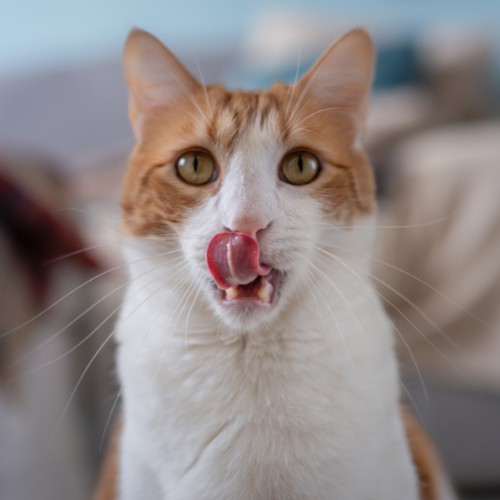
There are a few things you can do to limit unwanted face licking, as it can sometimes get annoying.
Setting Boundaries and Positive Reinforcement
While face licking is a natural behavior for cats, some pet owners may find it bothersome or unpleasant. If you want to discourage your cat from licking your face, it's important to set clear boundaries and use positive reinforcement techniques.
Start by gently redirecting your cat's attention when they begin to lick your face. You can do this by calmly moving away or offering a toy or treat to distract them. Consistency is key – each time your cat attempts to lick your face, repeat the process of redirecting their focus.
Avoid punishing your cat for face licking, as this can damage your bond and cause stress or anxiety. Instead, reward your cat with praise, treats, or playtime when they engage in alternative behaviors, such as playing with toys or cuddling without face licking.
Redirecting Attention to Appropriate Outlets
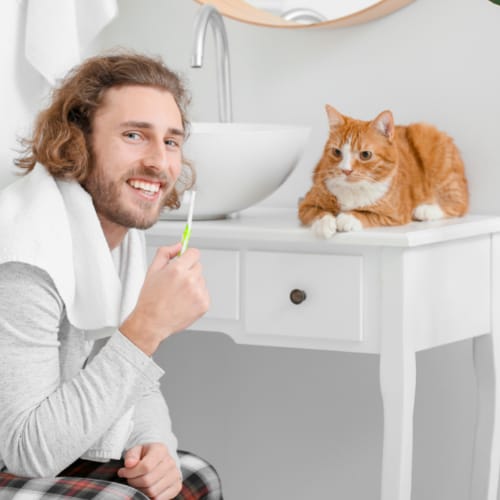
One effective way to manage unwanted face licking is to provide your cat with appropriate outlets for their grooming and affection-seeking behaviors. This can help satisfy their needs while reducing their desire to lick your face.
Encourage your cat to groom themselves by:
- Brushing them regularly with a soft-bristled brush
- Providing a variety of grooming toys, such as self-grooming brushes or textured mats
- Ensuring they have a clean, comfortable space to groom themselves
You can also redirect your cat's affection-seeking behaviors by:
- Engaging in interactive play sessions with wand toys or laser pointers
- Providing puzzle feeders or treat-dispensing toys to keep them mentally stimulated
- Offering alternative forms of physical affection, such as petting or brushing
By giving your cat positive, appropriate outlets for their natural behaviors, you can help reduce the frequency and intensity of face licking.
Providing Alternative Forms of Affection
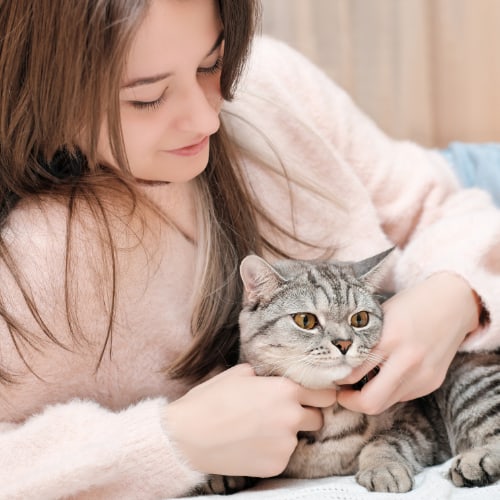
If your cat's face licking is driven by a desire for affection and bonding, it's important to provide alternative ways to strengthen your relationship. This can help satisfy your cat's need for connection without relying on face licking.
Consider trying the following alternative forms of affection:
- Gentle petting and stroking, focusing on your cat's favorite spots (e.g., chin, cheeks, base of the tail)
- Slow blinking or "cat kisses" – when your cat makes eye contact, slowly blink your eyes to show affection
- Talking to your cat in a soft, soothing voice
- Offering treats or rewards during bonding sessions
Frequently Asked Questions
In this section, we will answer some commonly asked questions to make sure every aspect of the topic is covered.
Is face licking common among cats?
Face licking is relatively common, but not all cats do it to the same extent. It varies based on personality, socialization, and the cat-human relationship.
Is face licking a sign of dominance?
No, face licking is usually a sign of affection, bonding or seeking attention and comfort, not dominance in cats.
When is excessive face licking a concern?
Excessive or compulsive licking may indicate stress, anxiety, or medical issues like dental pain. Consult your vet if you notice sudden changes in face-licking behavior.
How can I discourage face licking?
To discourage face licking, try the following:
- Redirect attention with toys or treats
- Move away calmly and consistently
- Provide alternative affection
- Reward desired behaviors
- Avoid punishment
Be patient and consistent when setting new boundaries.
Is it hygienic to let my cat lick my face?
No, it's not considered hygienic. Cats' mouths can harbor harmful bacteria, especially if they groom their anal area or consume prey. Minimize risks by discouraging face licking and practicing good hygiene.
Can face licking be a sign of hunger?
Sometimes, cats may lick their owners' faces as a way to signal that they are hungry or want attention. However, this is not always the case. Pay attention to your cat's body language and the timing of the face licking to determine if it might be related to hunger.
Do cats lick faces as a way of grooming their owners?
Yes, cats may lick their owners' faces as an extension of their grooming behavior. In the feline world, mutual grooming is a sign of social bonding and affection. By licking your face, your cat may be treating you as a member of their social group.
Final Thoughts
Face licking is a unique and endearing way cats express their affection for their human companions. By understanding the reasons behind this behavior, from maternal instincts to seeking comfort and attention, we can better appreciate and respond to our feline friends' special way of showing love.
Some cats, however, might drool while licking due to reasons unrelated to affection. If you notice your cat drooling excessively while petting them, it's best to consult a veterinarian to rule out any underlying health issues.
While not every cat owner enjoys face licking, it's important to approach this behavior with patience, consistency and an open heart. By gently redirecting your cat's attention and providing alternative outlets for affection, you can set boundaries while still cherishing the bond you share.
Remember, every cat is unique, and their face licking habits may vary. As a cat owner, your role is to observe, listen and respond with love and respect. Embrace the quirks that make your cat special, and cherish the privilege of being loved by such a fascinating and unforgettable creature.
Thanks for reading!

